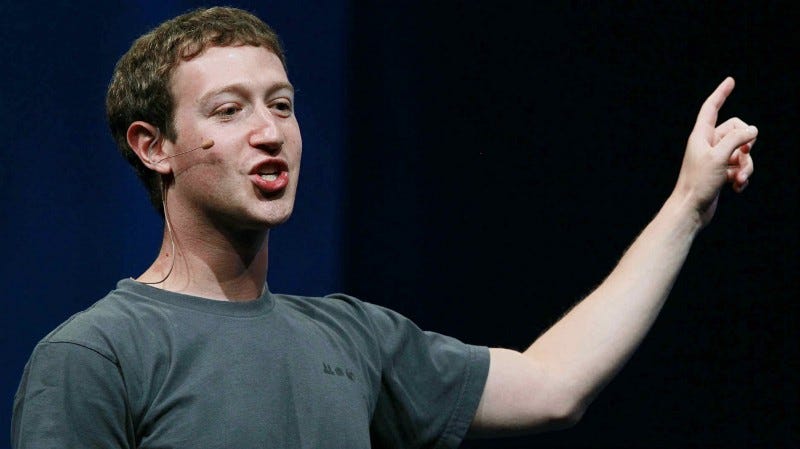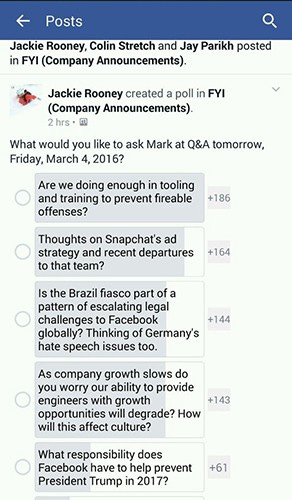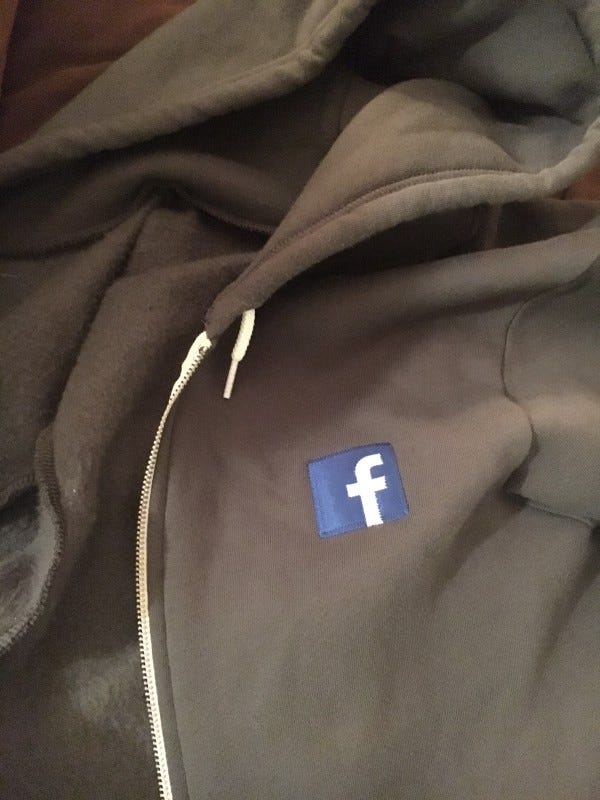Could Mark Zuckerberg decide the presidential election?
The media’s been abuzz over a report this week claiming that Facebook staffers blocked conservative news stories from the site.

The media’s been abuzz over a report this week claiming that Facebook staffers blocked conservative news stories from the site.
Facebook denies the report. But it’s worth considering the growing role Facebook has in shaping public opinion — and whether it could use its enormous power to swing elections.
Around 200 million people in the US use Facebook every month, for an average of 50 minutes a day. It’s what Parag Khanna calls a “stateless superpower”.

It’s where we get our news, share our personal opinions and political views. It’s also becoming a place where politicians are spending more time & money. The site’s rich demographic data lets politicians target prospective voters with highly personalized messages.
Facebook’s “Trending Topics”, introduced in 2014, show up in a section to the right of the main newsfeed. The feature uses an algorithm to identify and promote topics in major media outlets that people are buzzing about. The topics are personalized to each user based on their “Likes” & location.

Facebook’s “Trending Topics”
According to a recent blog post, the company has a system involving both software formulas and humans to ensure stories displayed in “Trending Topics” aren’t biased.
Justin Osofsky, Facebook VP of Global Operations (and my former McKinsey colleague), says “We have a series of checks and balances in place to help surface the most important popular stories, regardless of where they fall on the ideological spectrum… Facebook does not allow or advise our reviewers to discriminate against sources of any political origin.”
Does Facebook have a political agenda?
Most companies do. Facebook CEO Mark Zuckerberg appeared to publicly denounce Donald Trump at last month’s annual F8 developer conference: “I hear fearful voices calling for building walls and distancing people they label as ‘others.’ I hear them calling for blocking free expression, for slowing immigration, for reducing trade, and in some cases even for cutting access to the internet.”

Facebook employees understand the political power they wield. In an internal poll on what questions they want Zuckerberg to answer at the next Q&A, one question was “What responsibility does Facebook have to help prevent President Trump in 2017?”

Internal Facebook poll
Facebook has no legal responsibility to provide an unbiased view of what’s happening on its network. Just as the New York Times has a First Amendment right to block or promote any content it wants, so can Facebook.
It can decide which candidates to cover, and whether to show them in a positive or negative light. It’s not that different from how a newspaper editor decides which stories to run in large type on the front page.
There’s one key difference, though. Facebook keeps its formulas secret, just as Google doesn’t release the algorithms that underlie its ubiquitous search engine.
What these companies do with their algorithms can have profound effects.
In 2010 Facebook ran an experiment with 61 million people to see how it could impact real-world voting behavior. According to one study, Facebook increased voter turnout by more than 340,000 people, simply by showing users a photo of someone they knew saying “I voted”.
When I visited Facebook’s headquarters last summer, one theme I heard repeatedly was “Facebook tries to ship love”. They understand the power they have to shape users’ emotions. It’s one of the keys to their success.
Nearly 80% of online American adults use Facebook. More people get their news from it than any other source. The company’s influence in politics & elections is unprecedented in the history of media. If it wanted to, it could almost certainly skew a national election toward one candidate.

My beloved Facebook hoodie
The same could be said for Google.
I’m not saying this is happening now or is likely to happen in the future. But it should give us pause to consider: What if Facebook decided to remove any pro-Trump media coverage from its site? The damage it could do to a politician who relies so heavily on mass media would be “yuge”.
Companies have always used their power to sway elections, in the form of campaign contributions, ads, lobbying, bribery, etc. But no company has ever held so much influence while providing such minimal transparency into its operations.
I love Facebook. I was one of its original users back in 2004 when “thefacebook” was available only to Harvard students. I use it every day.
The idea of a tech company using its engineering savvy to destroy Trump may sound quite appealing to many people. But we should be cautious about where we’re heading.
Is there a way to make companies like Google and Facebook accountable and transparent on how their software shapes public opinion?
Or do we risk letting elections be decided by a handful of Silicon Valley CEOs?


